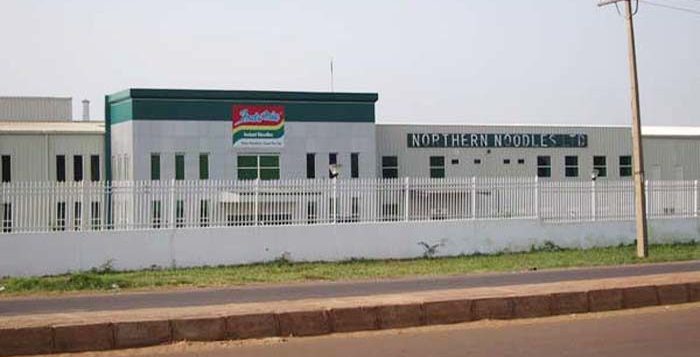Despite the reduction in road haulage costs, cargo owners struggle to transport containers to their destinations.They noted that while they prefer to move their containers via rail and barge, the inefficiencies in Nigeria’s multimodal transport system force them to use mostly trucks both on short and long distances.
The Guardian gathered that 90 per cent of the cargoes from the ports are moved by road, while barge takes up seven per cent and rail, three per cent.
Investigation showed a downward trend in container trucking costs from the ports. However, cargo owners said the figures remain high, particularly for inland destinations.
Data gathered from cargo owners and terminal sources indicate that trucking containers within the port to the exit gate costs N70,000 to N80,000. The Tin Can port gate to Ikeja now costs N400,000. This was previously N700,000. Movement to Sango Ota also dropped to N700,000, down from the earlier range of N900,000 to N1 million, a rate that also applies to Badagry.
Truck movement from Tin Can Port to Alaba International now costs between N300,000 to N400,000, a reduction from N600,000. The cost from Lekki Port to Ikeja currently stands at N700,000, down from approximately N1 million, while Apapa to Ibadan remains on the high side, ranging between N1 million and N1.2 million, depending on the trucking company.
Cargo owners and agents said their efforts contributed to the reduction of the trucking cost as they tackle the racketeering syndicates who are third parties to purchasing the Eto call up tickets at about N400,000, causing the haulage cost to increase.
The National Coordinator of the Save Nigeria Freight Forwarders, Importers, and Exporters Coalition (SNIFIEC), Osita Chukwu, stated that “Truckers were charging agents between N300,000 to N450,000, saying it was for call-up fees. But when we investigated, we found out it was only N21,000. We started paying the official price and had the trucking price reduced.
The President of the National Council of Managing Directors of Licensed Customs Agents (NCMDLCA), Lucky Amiwero, identified the Electronic Truck Call-Up System as a major contributor to inflated road transport costs, noting that its current implementation has created opportunities for racketeering and middleman manipulation.
“We have called for ETO to be managed by licensed customs agents—those who understand the procedures and are directly liable for the goods. Right now, truck owners and intermediaries are gaming the system. The result is exorbitant costs for moving cargo,” Amiwero explained.
The Guardian further gathered that while rail and barge offer critical alternatives to road transport, their impact remains marginal due to infrastructural and operational constraints, thereby making both systems struggle to match the scale of Nigeria’s port logistics demand.
Sources at the Lagos seaport terminals stated that a significant logistics constraint continues to hinder the efficiency of barge operations, especially with the absence of a dedicated berth (key apron) for barging activities.
Currently, barges can only access berthing space when there are no vessels at the quay, which is a rare window given the busy nature of the ports. When ships take precedence, as keeping them waiting is expensive, barges are often left idling offshore, unable to discharge or load cargo.
A source within a barge leasing company also revealed that the current cost of hiring a barge has surged to around N750,000, up from the previous average of N500,000, which includes associated charges.
According to the source, there is a hire duration, where clients often pay for a minimum of 24 hours of usage, as any additional time is billed as extra. Confirming the situation, the President of the Barge Operators Association of Nigeria (BOAN), Olumekun Olubunmi, said no port in Nigeria has proper berthing space for barges, as operators face delays and are sometimes forced to vacate areas for larger vessels.
He said this situation limits evacuation, hinders exports and could prove catastrophic during emergencies.
Olubunmi lamented the declining patronage of barges, even though the mode was originally intended to serve as a cheaper, more efficient alternative to road transport.
Olubunmi said the reverse is now the case, as terminal handling charges and other associated costs have made barge operations nearly as expensive or even more expensive than road haulage.He said terminal handling charges for barge exports cost N180,000 per container, while import costs N40,000.
Olubunmi said this cost is added to the logistics cost as barge movement from Tin Can to Mile 2 costs around N400,000 per container, while locations like Ikorodu cost around N600,000, due to higher fuel (bunker) consumption.
“What you pay just to load or offload a barge is sometimes equal to what you will spend moving the same container by road. And yet, after the barge, you still need trucks to take it from the jetty to the destination,” he said.
He said that with the ongoing port rehabilitation projects, the government and port authorities should use the opportunity to designate a berth exclusively for barge operations, which would significantly decongest port traffic and streamline multimodal cargo movement.
On rail operations, the source at the seaport terminal stated that with the improved collaboration between APM Terminals and the Nigerian Railway Corporation (NRC), train loading is now pre-booked, with containers identified and ready before the train arrives, while it departs within a few hours of arrival.
However, despite this efficiency, rail still handles a minimal share of container traffic and operates thrice weekly.For example, one rail service moves about 20 containers per day, which is around 60 containers per week – roughly 5,200 TEUs yearly, according to a source at the terminal.
The source said this is a negligible fraction when compared to the port’s total throughput, which exceeds one million TEUs per year.
Stakeholders said while the cost seems reduced, it is still on the high side, noting that a properly integrated transport system that harmoniously link sea, rail and road modalities for seamless cargo distribution should be implemented.
Amiwero said the overreliance on trucks for cargo movement is because of the absence of functional rail infrastructure and systemic inefficiencies in barge operations.
“We don’t have efficient rail anywhere in the port system. The few badges in use are limited and not sufficient. Agents rely almost entirely on trucks, and that is where the cost burden lies,” he said. He said although the standard gauge rail from Apapa to Ibadan is functional, it serves mainly long-distance freight and Inland Container Depots (ICDs), rather than short-haul intra-city deliveries within Lagos.
“Customs agents often move goods within Lagos—Alaba, Ikeja, Mile 2, Oshodi. We need rail solutions that serve local distribution, not just cross-state corridors,” he said.
Amiwero urged the Federal Government to introduce a coherent transport master plan that integrates rail, road, and inland waterways, along with a robust regulatory framework that empowers licensed agents to manage the process transparently.
Chukwu described Nigeria’s cargo movement network as “crippled by foundational failures,” stating that the country lacks a properly integrated transport system that should harmoniously link sea, rail and road modalities for seamless cargo distribution.
Chukwu emphasised that, globally, water transport is the most efficient and cost-effective for heavy cargo, followed by rail, then road, however, Nigeria’s reverse reliance on trucks for long-haul cargo stems from underdeveloped rail lines, poor integration of barge operations and intermodal connectivity.
The SNIFIEC Coordinator also explained that delays and inefficiencies have discouraged freight agents and importers from relying on the railway system. Chukwu also pointed to barge operations as a significantly cheaper alternative that has seen minimal utilisation due to bureaucratic inefficiencies and logistical delays at terminals.
Chukwu emphasised the need for a cohesive national transport strategy, modeled after international standards, to streamline cargo movement.
“In advanced countries like the United States, France, and the United Kingdom, you have distinct, well-structured layers of transportation: rail, road, sea, and even bicycle lanes, all working seamlessly. Heavy cargo moves underground via rail, while lighter traffic operates above ground. Nigeria lacks such a synchronised system,” Chukwu said
The Managing Director of Inland Containers Nigeria Limited (ICNL), Omotayo Philips Dada, emphasised that rail and truck logistics are not competing services but complementary solutions essential for efficient cargo movement across Nigeria.
He explained that for massive movements, such as transporting over 2,000 containers to the northern part of the country, both systems must operate simultaneously.
On which mode is more frequently patronised, Dada noted that customers base their choice on availability and need, noting that both trucks and rail have their advantages.
When asked about cost comparisons, Dada stressed that pricing is not fixed but depends on volume and cargo specifications.
“Someone with 10 by 40 containers might prefer rail, while one container is more suited to trucking. So even the price will depend on volume and service needs.”






